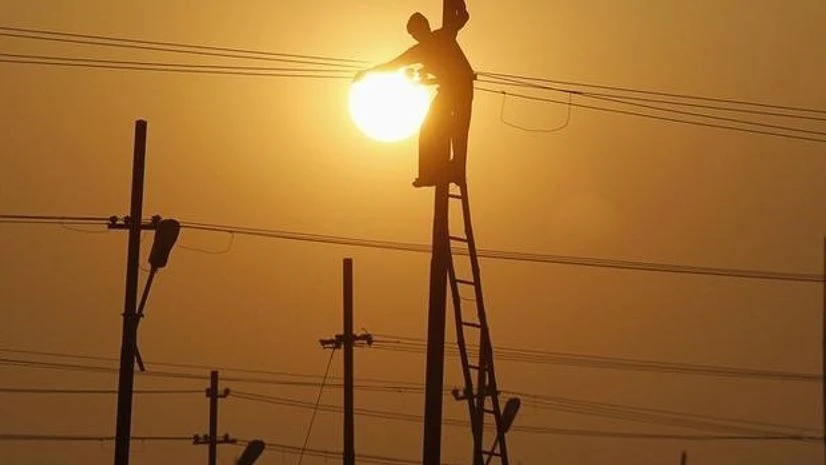A high level committee appointed by the Union Power Ministry for effective integration of renewable energy (RE) with grid has made a slew of recommendations including strengthening transmission system, robust data telemetry and communication systems, adherence to grid standards and regulations by RE generators and load forecasting by distribution companies, state, regional and national load despatch centres.
The committee in a bid to further promote power market has emphasised the need for more frequent market clearing in power exchanges comprising multiple iterations in day-ahead segment and new products such as real time markets, flexibility markets, capacity markets.
The committee in a bid to further promote power market has emphasised the need for more frequent market clearing in power exchanges comprising multiple iterations in day-ahead segment and new products such as real time markets, flexibility markets, capacity markets.
Read more from our special coverage on "POWER TRANSMISSION"
The committee headed by special secretary constituted in April 2015 submitted its report last month when the Centre already launched am ambitious plan to increase the renewable capacity to 1,75,000 Mw by 2022 from the present level of over 40,000 Mw.
| DOING A POWER OF GOOD |
|
The committee has suggested that a robust transmission services is essential to ensure that RE generation backing down is minimal. With the short gestation period of RE generation, transmission has to lead generation.
Power Ministry official told Business Standard, "There is need for transmission corridors from states with high penetration of renewables along with coordinated transmission planning. In case of transmission scheme of RE, a single window approval procedure may be adopted to facilitate speed up the implementation. The Green Energy Corridor project is under implementation in the 8 states comprising Andhra Pradesh, Gujarat, Himachal Pradesh, Karnataka, Madhya Pradesh, Maharashtra, Rajasthan and Tamil Nadu. It is expected to be operational on April 1, 2017."
Further, the committee has suggested a Regulatory Framework for forecasting, scheduling and imbalance settlement both at the inter-state and intra-state level to facilitate integration of large scale renewables. Already Madhya Pradesh, Rajasthan, Odisha, Karnataka, Jharkhand and Tamil Nadu have formulated regulations on Forecasting, Scheduling and Deviation Settlement of Wind and Solar Generating Stations.
Further, the committee has suggested a Regulatory Framework for forecasting, scheduling and imbalance settlement both at the inter-state and intra-state level to facilitate integration of large scale renewables. Already Madhya Pradesh, Rajasthan, Odisha, Karnataka, Jharkhand and Tamil Nadu have formulated regulations on Forecasting, Scheduling and Deviation Settlement of Wind and Solar Generating Stations.
Also Read
The committee has made a strong case for Frequency Control to balance generation and demand in real time operation and thereby maintain grid security. The operational frequency band in India is 49.90 – 50.05 Hz and the system remains 60 –65 % of time within the band.
The committee stressed the need to further improve it through Primary and Secondary control and reserves. The official made it clear that as large quantum of RE Generation is going to be integrated with the grid, keeping in view the security of the grid, the Forecasting and Scheduling for RE Generators will be non-negotiable.
The committee stressed the need to further improve it through Primary and Secondary control and reserves. The official made it clear that as large quantum of RE Generation is going to be integrated with the grid, keeping in view the security of the grid, the Forecasting and Scheduling for RE Generators will be non-negotiable.
The committee has taken into consideration suggestion made by stake holders and recommended the introduction of aggregators to coordinate with several RE generators for scheduling, real time operation and settlement of imbalances with the State/Regional Pool and RE generators.
In order to maintain and deploy generation reserves, the committee has suggested that necessary incentives to the generators be provided. To begin with, a framework for identification and utilising of generation reserves available with regulated generators may be implemented. Subsequently, by March, 2017, evolution to a market based framework may be done for efficient provision of all types of reserves across India.
According to the committee, a distribution company and state load despatch centre will be required to commit adequate generating resources to meet the anticipated load and RE generation. The states will need to forecast and ensure adequacy of generation on a day-ahead basis. Further, a balanced portfolio will be required to be demonstrated and maintained at state level in different time frames.
Moreover, the committee has suggested that in order to have required skill sets for planning, operating, maintaining and governing power systems with increasing shares of renewables the system operators may engage reputed institutions and development agencies in India and abroad. This will help develop suitable training programmes with international experts and benchmark with international best practices.

)
